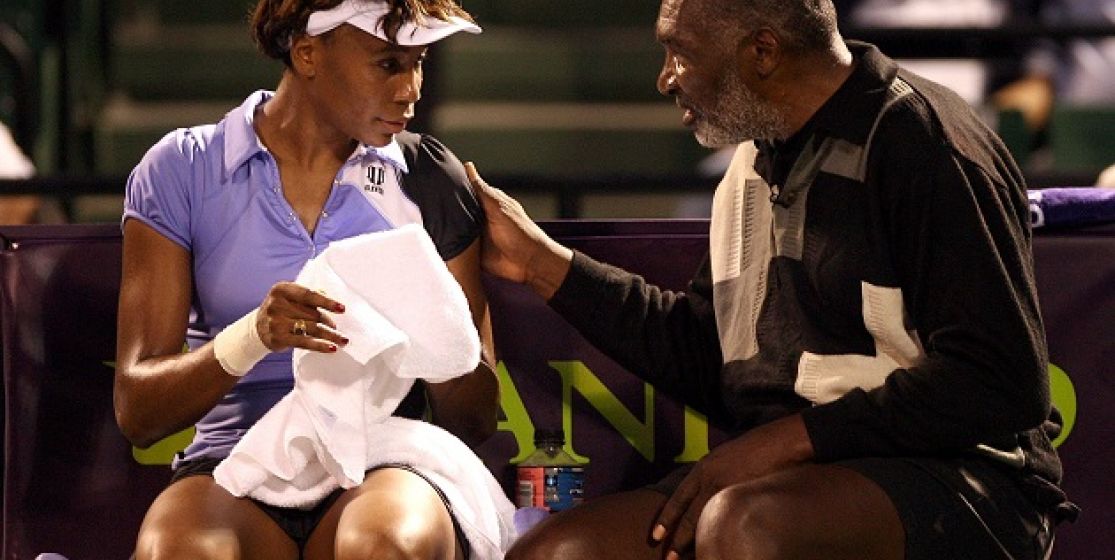The tour is full of coaches who never made it as professionals when they were in age to play. We could even believe that the current players don't really care about their mentors' prize list. Focus on a specificity of tennis.
It’s difficult to ignore the importance of Pete Fischer in Pete Sampras's career, even if the two men ended their collaboration in 1989, before the first Grand Slam title of the American player. In addition to being very greedy financially, Fischer had the particularity of being a paediatrician... who knew nothing about tennis. An original case, but actually not so unusual.
Several top players on the tour are indeed coached by people whose resume doesn't contain the words "former professional player." And not just any player: Victoria Azarenka is working with Sam Sumyk while Marion Bartoli was coached by Thomas Drouet when she won Wimbledon, just to name a few. Both have never made it racquet in hand, which didn't prevent them to get work and to be acknowledged as great coaches today. Hard to imagine such a situation in football, for example, where the big egos of the dressing rooms have a hard time respecting a coach who doesn't have a glorious past. Of course, Gerard Houllier, the Liverpool legendary coach never played at a high level, but his case remains the exception. "The difference is that a football coach isn't chosen by the players, but by the management of the club. In tennis, it's the player who hires you. So if he chooses you, it means that he trusts you", says Thomas Drouet. The lack of experience at the highest level would therefore not be a handicap. "The player will see if you help them win, if he improves, and if he's happy with your philosophy, that's it. They don’t care if you played pro or not" explains Ronan Lafaix, former coach of Stephane Robert and a "mere amateur" during his career. The author of A New Coaching To Win continues: "In fact, I had more problems with my rankings with the amateurs than with the pros. The players were a little ashamed to say that I was 15/2. While on tour, what matters is how efficient you are."
"All great coaches are first and foremost great psychologists"
How to compensate for their lack of experience at the highest level in their approach with players? By keeping a low profile and keeping an open mind, according to Sam Sumyk: "With my player, I avoid saying ‘I know’ when I don't. Because there are some situations I never experienced, I know very well that I can't discuss certain aspects of the game, but I'm not ashamed to confess my lack of knowledge and I try to fill my shortcomings by doing research, reading and meeting people." If you listen to them, having been a great player allows a coach to hit the ball with their foal and avoids them the costs of a sparring partner, but it doesn’t help to win games. "There are subtleties that only someone who did competitions can bring, it's true. But it’s not because someone is a former Top 100 that he will make a good coach", says Thomas Drouet. What matters is knowing who you're dealing with and understand his behaviour and expectations. In short, to put the human aspect at the centre of coaching. That is why so many parents improvise themselves as their offspring's coach at the beginning of their career. Not a bad idea actually: at the end of the day, who knows Serena Williams better than her own father? "All great coaches are first and foremost great psychologists", says Ronan Lafaix.
Still, if cases of coaches who were never professional are quite common in the world of the yellow ball, it is mainly the absence of former glories among the herd of coaches that is surprising. Aside Lendl and Connors, very few great players have became coaches. The reason? Having to sacrifice yourself for the benefit of someone else is not an easy task when you've been used to being in the spotlight during your career. "When you coach, you have to put yourself aside and be at the service of the player. To be in the shadow when everything revolved around you for fifteen years can be hard to take, especially for a former star" explains Thomas Drouet. Will Federer change the statistics when he'll decide to end his playing career?






